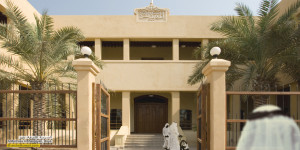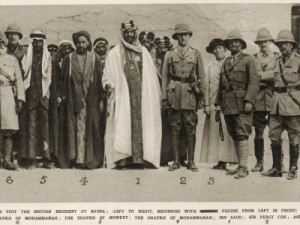The war in Yemen has been going on for over three years. The best armed military forces in the Middle East are Saudi Arabia and the United Arab Emirates, and they have been fighting and constantly bombing North Yemen and the capital Sanaa which is held by an alliance of Houthi tribal fighters and elements of the former Yemeni Army. The Arab neighbors even have had heavy involvement of American and British personnel. But the war has been a failure, so far.
Now reports indicate that the Americans are getting more directly involved against the Houthi alliance. Perhaps Mr. Trump thinks he can somehow change the course of the war. He has not learned the recent lessons of Afghanistan or the history of Yemen. But then they say he does not read (or write). A futile war so far, although the Saudi-UAE coalition have hopes that Trump will try to pull their royal nuts from that fire. Something their bought and well-paid foreign mercenaries from Africa, Australia, and Colombia have failed to do. But Donald Trump does not come cheap: it will be for a fee of many billions of dollars.
The Yemen case is complex: it involves multi-faceted wars involving various sides. Saudi Arabia and the UAE are fighting the ruling Houthi powers in the capital of Sanaa, claiming they are trying to eject Iranian influence from their border region. That would be a passable excuse, except that they have failed to show us one single Iranian or Lebanese captive from the battles in Yemen. Then there are Al Qaeda in the Arabian Peninsula (AQAP) and now the Saudi invasion has also expanded the domain of ISIS in Yemen.
Then there are the Southern secessionists (Hirak) who want to regain the independence of Aden and the Southern provinces.
But a major new headache for the Saudis are their current allies in the United Arab Emirates. The UAE has a citizen population just barely over one million, and it also has some 7-8 million foreign expatriate laborers and others who rotate every few years. The secret of why it is doing better than their Saudi allies is their foreign mercenaries plus better training for their own native forces. They have formed elite units of fighters from among experienced foreign mercenaries, and have outmaneuvered the Saudis out of contention for Southern Yemen. They effectively control the urban parts of Southern Yemen, and they have made hints at supporting the secession (or return to independence) of the South. Even the Saudis may have come to accept that.
So, the Saudis are stuck with facing the tough Houthis just to their south. They take their frustrations on Yemen by destroying the infrastructure with daily bombings, with reported targeting and mid-air refueling done by alleged American and British experts.
Enter the case of the GCC member country of Oman, actually a reluctant member of the Gulf Cooperation Council. Oman is an interesting case, the only Gulf state that had built a small overseas empire up to the late 19th century. Now the UAE borders the neutral Gulf country of Oman from the north. Oman always keeps away from Gulf and Arab petty disputes, preferring to face towards the Indian Ocean and Iran. You never hear or read of Oman complaining about Iranian (or Lebanese) meddling, unlike the ruling family of the Saudi satrapy of Bahrain, for example.
If the UAE rulers can control South Yemen, they would be squeezing Oman from the Southwest as well. They will be able, along with their Saudi partners in war, to wreak havoc in Oman, possibly make her face some new problems, although like Qatar, Oman has better ties with Iran and other countries. The Marxists who ruled the independent South Yemen tried to encroach into Oman in the 1970s, but failed.
The Saudis and Emiratis have tried recently, through their media and proxies, to coerce and pressure Kuwait to the north. That attempt failed spectacularly, given the political history of Kuwait and that it is a special case and shares borders with Iraq, Iran, and Saudi Arabia. The Emiratis are also reportedly creating (actually renting) bases on the impoverished Horn of Africa, not bad for a tiny Gulf country. It is unlikely the Saudis will be comfortable with Emirati (actually Abu Dhabi) influence encircling them to the south either. There are already increasing signs of Saudi discomfort that the much smaller UAE is outsmarting them in Yemen (and in Libya). You can read it in some media and in the social media comments of some top officials.
So, the Arab places to keep an eye on in the next few months and years are South Yemen and Oman.
More to come……
Cheers
Mohammed Haider Ghuloum





